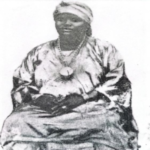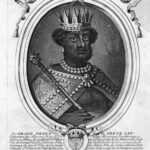SHORUNKEH-SAWYERR, JOHN C.
- 3 Min Read
John C. Shorunkey-Sawyerr (January 3, 1863-May 29, 1929) was a successful Krio (Creole) businessman and lawyer, partner to his elder and more flamboyant brother Alfred .
He was born on January 3, 1863, the son of T.J. Sawyerr, who started the first bookshop in Freetown and ran a profitable printing press. John attended the Government Model School and like his elder brother Alfred, the Church Missionary Society Grammar School in Freetown and the Monkton Coombe College in Bath, England. He studied accountancy and business in Liverpool from 1880-1882 and lived in France for a year to study the French language. Thus equipped he returned home and managed his father’s business until 1889, when he left to study law at Gray’s Inn, London.
In 1892 he was called to the bar and in 1896 set up in partnership with his brother in the legal firm of Shorunkeh-Sawyerr and Shorunkeh-Sawyerr, which they ran as well as their father’s bookstore. By all accounts, the legal partnership was a successful and lucrative venture, and the brothers attracted a creditably large clientele.
Despite the large slice of their time that professional businesses must have taken, they both found time to engage in numerous other activities. These ranged from politics to a strong interest in esoteric organisations, both were members of the Poro Society and Cabbalistic associations like the Banner Church founded by Professor Abayomi Cole . They were also keenly and knowledgeably interested in agriculture.
Although the two brothers were inseparable, their careers followed different paths, and their approaches to politics were widely different. Alfred was nominated and became a valued member of the Legislative Council (1911-1924); he was strongly outspoken in his criticism of government policy, yet on certain current political issues he displayed unexpected conservatism.
John, by contrast, was reserved to the point of taciturnity, but in his numerous writings and speeches on topical questions, he expressed a quite distinctive radicalism and a strongly pro-African stance.
Though he did not join the local National Congress of British West Africa (founded in 1920, the first organised and articulate group in British West Africa to express open criticism of the colonial system), he addressed meetings of the movement. His text for one such address in 1924 was on high taxation and unrepresentative government. Political tracts, generally written in local newspapers, were part of his literary output, but he also wrote copiously on agriculture.
Keeping up such a range of activities must have taxed his constitution severely, for in his later years he was afflicted with heart trouble and uncertain health. He died on May 29, 1929, exactly eleven days after his brother, and was survived by six children.
AKINTOLA J.G. WYSE





